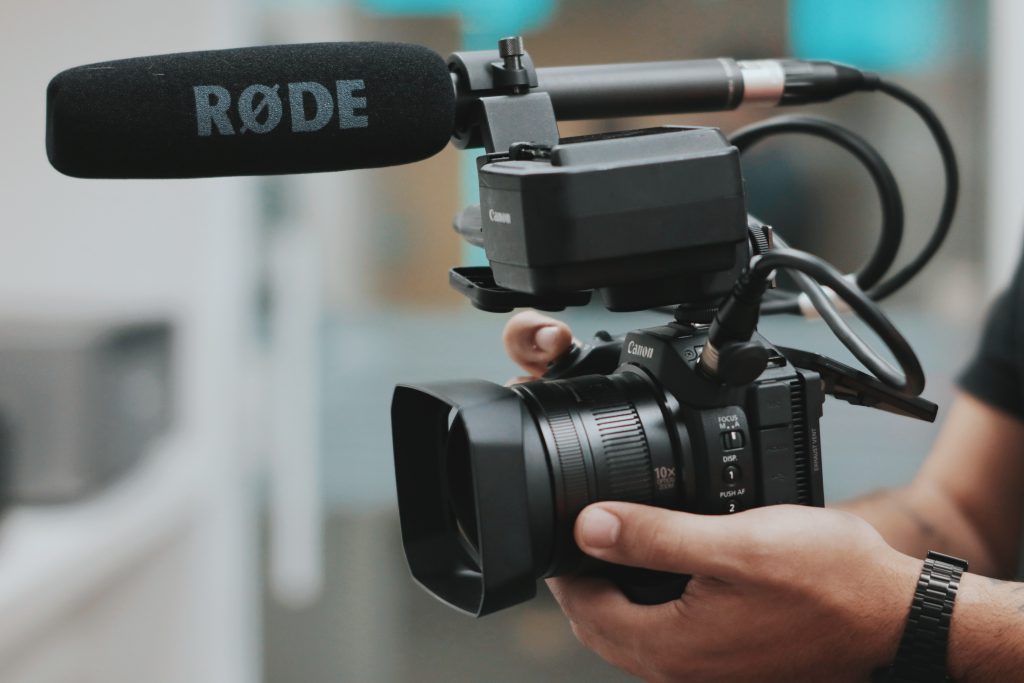Have you shot a wedding at my venue before?
A good videographer will be able to efficiently identify the spots with beautiful lighting or figure out where to position themselves to get the best angle. Nevertheless, if your videographer has shot at a specific location before, they’ll know their way around and will get the job done more effectively than a videographer who has not. If your videographer has never worked at your venue before, suggest visiting the venue with them before the big day so that they have a chance to become familiar with it.
Which parts of the occasion will you shoot?
Videographers regularly specify the number of hours that they’ll shoot, but which sections of your wedding fall within those hours, isn’t always clear. It’s practically a given that major events, such as your ceremony and first dance will be shot, but if you’d like the pre-drinks gathering or a session with your photographer to be included, ask if they’ll cover that as well. If you don’t have clarity on what’ll be shot from the get-go, you may end up with a video you’re not particularly fond of.
Which equipment do you use?
Videographers arriving at weddings with colossal cameras on wheels or other equally obtrusive tools is a thing of the past. Nowadays, most videography apparatus simply consists of a camera and a tripod. You want to ensure that your guests don’t feel intruded on, so check the size and types of equipment that’ll be used.
If these are large, ensure your venue is able to accommodate this without any interruption to the celebrations taking place. It’s also a good idea to find out whether the videographer will make use of a wireless mic as wires all over the place could be hazardous while no mic could mean your vows and speeches aren’t audible.
How do you edit the footage?
You’d naturally want an exquisite final product and this can only be achieved with high-quality editing methods. Ask your videographer to describe the procedure they follow when editing. The most reliable way of editing is to upload the film negative on a computer and then make the necessary adjustments on-screen. Some videographers use an in-camera editing method that involves attempting to get flawless shots the first time around to lower production time and costs. This could, unfortunately, result in a second-rate product.
Which music will you use?
The ideal music will blend seamlessly with the visuals to inject energy and stir great emotion. Be upfront with your videographer about the kind of music you’re crazy (and not so crazy) about, so that your video is a reflection of your personal tastes. Nonetheless, bear in mind that your videographer will have a firm understanding of the type of music that will be suitable so you need to have faith in their judgment. Don’t forget to ask whether they’ll use licensed music as the use of unlicensed music could mean getting into trouble with the law.
Will the video be in high definition (HD)?
In this day and age, HD television is becoming increasingly popular. Some might even say that it’s become a norm. A video in HD will have sharper visuals that display finer detail – something you shouldn’t compromise on, especially if you’re blowing your budget on one of the best videographers in the business.
When will the final video be ready?
Apart from a skilled videographer and top-notch equipment, another necessity for producing a stellar wedding video is sufficient time. After all the footage has been placed in a suitable order, music needs to be added and colours corrected, which can be time-consuming. Each videographer will work according to a unique timeline but the entire process could take roughly eight weeks, with some videographers taking as long as a year! If you’re itching to see the final product, ask your videographer if they’ll put together a trailer so you can get a sneak peek.
Picture: Pexels




















